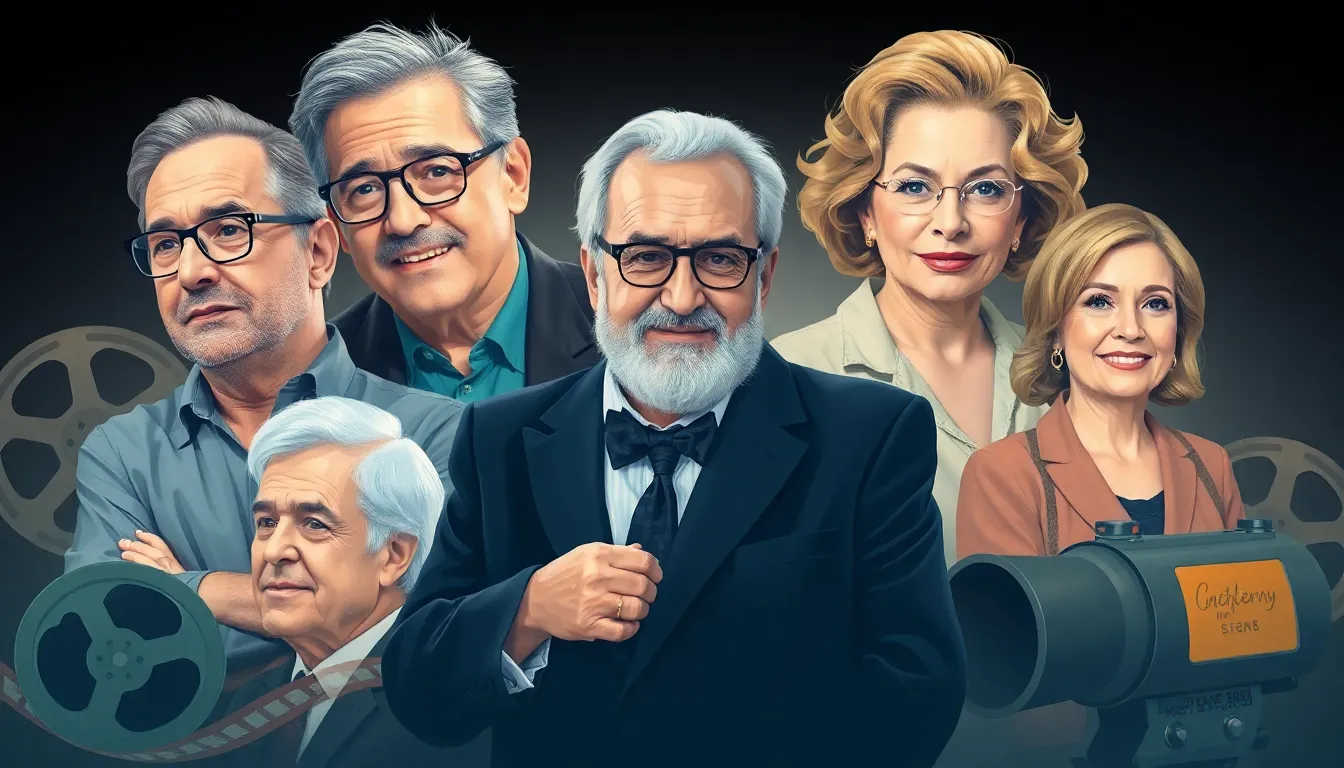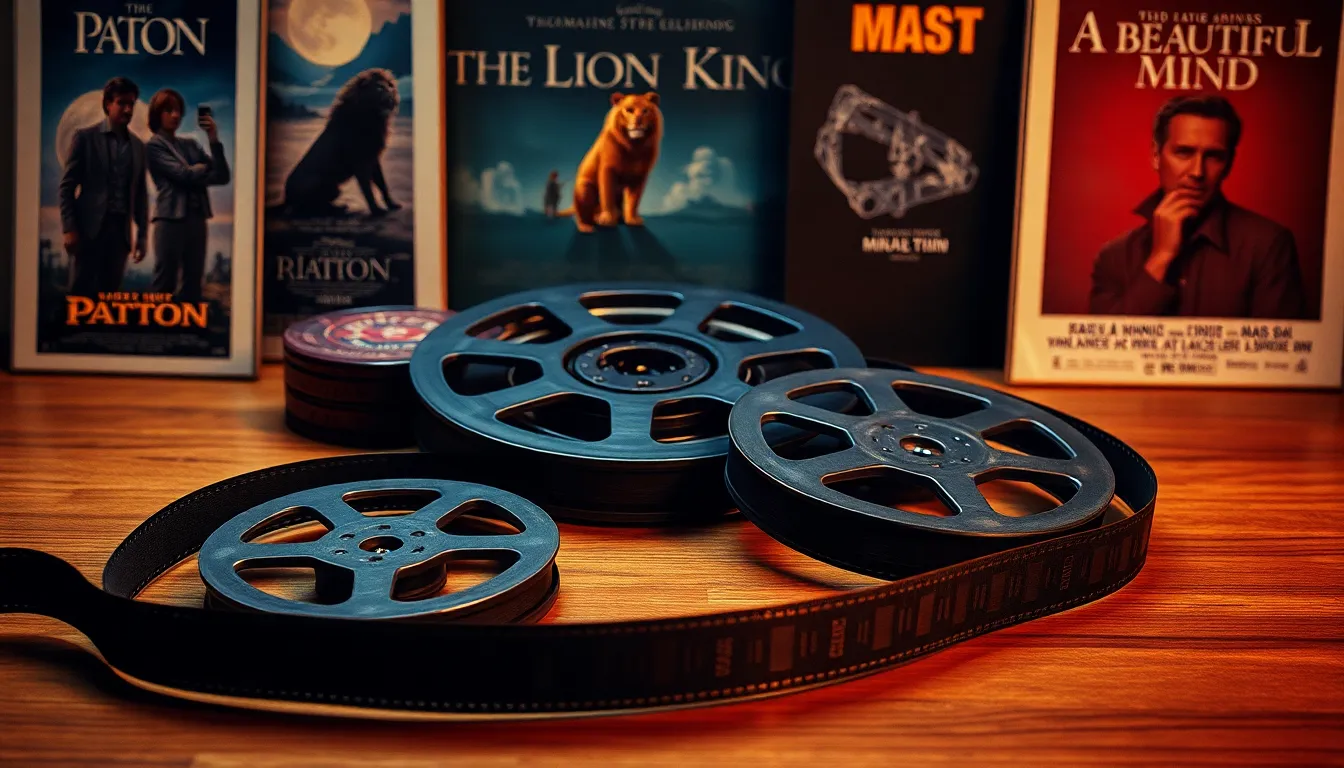Every day in film history is like a treasure chest waiting to be opened. From iconic premieres to unforgettable performances, the silver screen has a way of capturing moments that resonate through time. Today, as film lovers reflect on the past, they’ll discover a delightful mix of nostalgia and inspiration that fuels their passion for cinema.
Today In Film History
Significant milestones in film history today showcase transformative moments that shaped cinema. These events celebrate major film releases and notable achievements.
Major Film Releases
On this date, several influential films premiered, captivating audiences. Released in 1970, “Patton” received critical acclaim, featuring George C. Scott’s powerful performance. In 1994, the animated classic “The Lion King” debuted, becoming a cultural phenomenon. “A Beautiful Mind,” which premiered in 2001, captured attention with its portrayal of mental health and genius. Each of these films left a lasting legacy within the industry and film enthusiasts.
Notable Film Awards and Ceremonies
Major award ceremonies also mark this day in film history. The Academy Awards in 1996 honored “The English Patient,” which won several Oscars, including Best Picture. In 2018, the Golden Globe Awards recognized “Three Billboards Outside Ebbing, Missouri,” awarding Frances McDormand Best Actress. Events like these highlight the recognition of excellence in filmmaking, celebrating talent and innovation in cinema.
Influential Directors and Actors

Influential directors and actors have shaped film history with their contributions and vision. Each significant figure delivers something unique to cinema.
Spotlight on Iconic Figures
Francis Ford Coppola directed “Patton,” leaving a lasting legacy in film. This 1970 film showcased his ability to merge storytelling with powerful performances. Robin Williams captivated audiences in “Good Will Hunting” (1997), solidifying his status as a comedic and dramatic powerhouse. Meryl Streep’s versatility in roles, from “Sophie’s Choice” (1982) to “The Iron Lady” (2011), impressed film critics and fans alike. Directors like Jon Favreau transformed animation with “The Lion King,” while Russell Crowe’s portrayal in “A Beautiful Mind” demonstrated acting depth. Frances McDormand’s memorable role in “Three Billboards Outside Ebbing, Missouri” earned her immense acclaim, showing the impact of strong performances in contemporary cinema.
Landmark Films and Their Impact
Each landmark film revolutionizes cinema and influences culture in significant ways. These films resonate across generations, inspiring filmmakers and audiences alike.
Cultural Significance of Classic Films
Classic films often reflect societal values and historical contexts. “Gone with the Wind” (1939) revived interest in Civil War-era narratives. “Casablanca” (1942) embodies themes of love and sacrifice amid war. These films serve as touchstones, shaping cultural memory and discourse. They often lead to discussions about identity, history, and morality, showing cinema’s unique ability to capture the human experience. Events like the introduction of the Motion Picture Production Code also frame how films conveyed messages, shaping social attitudes and censorship through decades.
Evolution of Film Techniques
Film techniques evolve to enhance storytelling and viewer engagement. Early films relied heavily on static cameras and minimal editing. Innovations such as cross-cutting and montage emerged, revolutionizing narrative structure. Alfred Hitchcock employed techniques that built suspense, while directors like Orson Welles introduced deep focus photography. The advent of CGI transformed visual storytelling, allowing filmmakers to create fantastical worlds and characters. By pushing technical boundaries, directors continuously redefine the viewing experience, making cinema a dynamic art form.
Fun Facts and Trivia
Notable film releases often coincide with historical dates, each carrying a unique piece of cinematic history. “Patton,” released on February 27, 1970, received critical acclaim and remains a standard for biographical war films. The narrative’s depth reflects Francis Ford Coppola’s directorial prowess and marked a significant moment in American filmmaking.
In 1994, “The Lion King” debuted, captivating audiences worldwide with its animation and iconic soundtrack. This animated classic not only became a cultural touchstone but also influenced future animated features, demonstrating the power of storytelling through visuals and music.
“A Beautiful Mind,” which premiered in 2001, highlighted Russell Crowe’s exceptional performance. This biographical drama shed light on mental health issues and won numerous awards, including the Academy Award for Best Picture, further establishing its significance in film history.
Frances McDormand’s triumph at the 2018 Golden Globe Awards for “Three Billboards Outside Ebbing, Missouri” showcased her ability to portray complex characters vividly. Winning such accolades emphasizes the impact of strong female leads in contemporary cinema and inspires future filmmakers.
Landmark films, such as “Gone with the Wind” and “Casablanca,” made significant contributions to shaping cultural narratives. These classics reflect the era’s societal values and continue to resonate, serving as powerful touchstones that connect generations of viewers.
Innovative film techniques transformed cinema throughout history. From early static cameras to groundbreaking CGI, each advancement revolutionized storytelling. Such techniques underscore the medium’s dynamic nature, keeping it fresh and engaging for audiences.
Film history is rich with memorable moments, with each date offering a treasure trove of trivia that celebrates the art form’s evolution and cultural impact.
Conclusion
Each day in film history offers a glimpse into the artistry and innovation that shapes the cinematic landscape. From groundbreaking films to powerful performances, these moments continue to resonate with audiences and inspire future generations of filmmakers. The legacy of influential directors and actors underscores the profound impact of storytelling on culture and society.
As film enthusiasts reflect on these milestones, they celebrate the enduring magic of cinema that captivates hearts and minds. The evolution of film techniques and the rich narratives presented remind everyone why they fell in love with movies in the first place. Today serves as a reminder of the vibrant tapestry that is film history, inviting everyone to explore and appreciate its ongoing journey.

